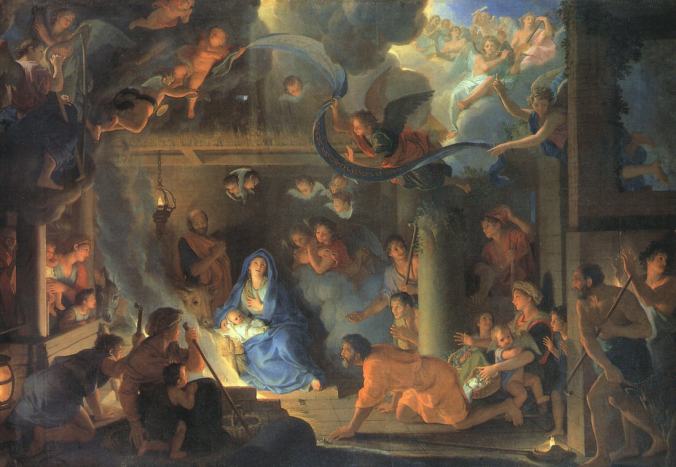Jacob was left alone; and a man wrestled with him until daybreak. When the man saw that he did not prevail against Jacob, he struck him on the hip socket; and Jacob’s hip was put out of joint as he wrestled with him. Then he said, “Let me go, for the day is breaking.” But Jacob said, “I will not let you go, unless you bless me.” So he said to him, “What is your name?” And he said, “Jacob.” Then the man said, “You shall no longer be called Jacob, but Israel, for you have striven with God and with humans, and have prevailed.” Then Jacob asked him, “Please tell me your name.” But he said, “Why is it that you ask my name?” And there he blessed him. So Jacob called the place Peniel, saying, “For I have seen God face to face, and yet my life is preserved.” The sun rose upon him as he passed Penuel, limping because of his hip. Therefore to this day the Israelites do not eat the thigh muscle that is on the hip socket, because he struck Jacob on the hip socket at the thigh muscle.
—Genesis 32:24-32
Two strands of thinking here:
Critical-Historical: Where the heck did this story come from? It’s got to be a later interpolation (it has no connection whatsoever to the surrounding verses and is never mentioned again in the OT), but from what? That last verse implies that the story came about simply to explain the dietary habits of Israelites. But really, why appeal to such an odd, powerful and incredibly profound story for such a simple message?
Biblical-Theological: Holy crap, what a concentrated text of such meaning. He “wrestles” with God, but it’s in the midst of his greatest stress and travail. It testifies to us how our greatest struggles in life are often wrestlings with God himself. We get a new name, we bear life-long scars, and it affects our ancestors for years to come.




![day one hundred eighty nine by [isabel]](https://paulburkhart.files.wordpress.com/2012/11/day-one-hundred-eighty-nine-by-isabel.jpeg?w=467&h=557)
